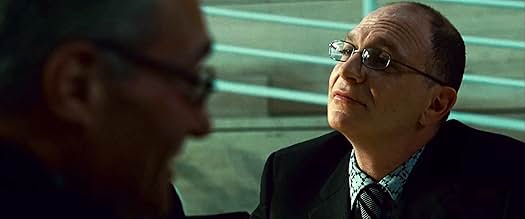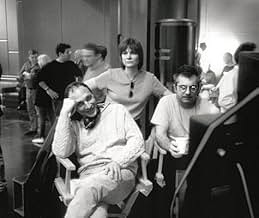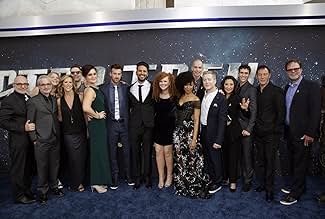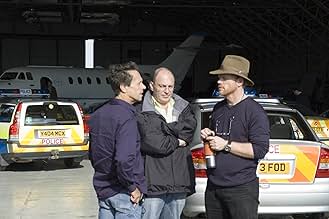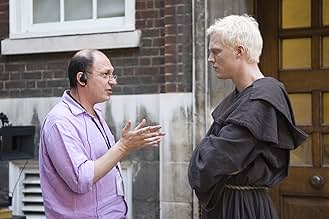Akiva Goldsman
- Producer
- Writer
- Director
The Brooklyn-born son of therapist Tev Goldsman and noted child psychologist Mira Rothenberg, screenwriter Akiva Goldsman began writing as a teenager, submitting stories to The New Yorker and other publications. Although his efforts were met with rejection, he continued an interest in creative projects, churning out stories and scripts while attending Wesleyan University and later NYU's masters program in creative writing.
His first produced script, "Silent Fall" (1994), was a fact-based screenplay about a psychologist aiding a criminal investigation in which a key witness is an autistic boy,
The film served as a calling card, giving Goldsman the opportunity to adapt John Grisham's best-seller "The Client" (1994). That film marked the start of a fruitful collaboration with director Joel Schumacher.
In 1995, Goldsman was brought on to work on the script for "Batman Forever", the third installment in the franchise which attempted to inject some levity, while many felt it was inferior to the first two Tim Burton-directed films.
The Schumacher-Goldsman continued with a second John Grisham adaptation, "A Time to Kill" (1996), and "Batman & Robin" (1997).
Goldsman next turned his attention to "Lost in Space" (1998). The movie opened well but soon fell off, grossing just over half of its estimated $126.5 million budget in the USA. That same year, Goldsman was one of three writers who adapted Alice Hoffman's novel "Practical Magic" into a starring vehicle for Sandra Bullock and Nicole Kidman.
After being credited as a producer on "Deep Blue Sea" (1999), Goldsman remained busy dividing his time between developing projects through his production company and accepting screenwriting jobs.
His next produced screenplay was "A Beautiful Mind" (2001), loosely based on the life of Nobel laureate John Forbes Nash Jr. who battled schizophrenia.
While the film drew some criticism for what it omitted, it also earned stellar reviews and earned Goldsman his first ever accolades, including a Golden Globe, a Writers Guild of America Award as well as an Academy Award for Best Adapted Screenplay.
His first produced script, "Silent Fall" (1994), was a fact-based screenplay about a psychologist aiding a criminal investigation in which a key witness is an autistic boy,
The film served as a calling card, giving Goldsman the opportunity to adapt John Grisham's best-seller "The Client" (1994). That film marked the start of a fruitful collaboration with director Joel Schumacher.
In 1995, Goldsman was brought on to work on the script for "Batman Forever", the third installment in the franchise which attempted to inject some levity, while many felt it was inferior to the first two Tim Burton-directed films.
The Schumacher-Goldsman continued with a second John Grisham adaptation, "A Time to Kill" (1996), and "Batman & Robin" (1997).
Goldsman next turned his attention to "Lost in Space" (1998). The movie opened well but soon fell off, grossing just over half of its estimated $126.5 million budget in the USA. That same year, Goldsman was one of three writers who adapted Alice Hoffman's novel "Practical Magic" into a starring vehicle for Sandra Bullock and Nicole Kidman.
After being credited as a producer on "Deep Blue Sea" (1999), Goldsman remained busy dividing his time between developing projects through his production company and accepting screenwriting jobs.
His next produced screenplay was "A Beautiful Mind" (2001), loosely based on the life of Nobel laureate John Forbes Nash Jr. who battled schizophrenia.
While the film drew some criticism for what it omitted, it also earned stellar reviews and earned Goldsman his first ever accolades, including a Golden Globe, a Writers Guild of America Award as well as an Academy Award for Best Adapted Screenplay.


